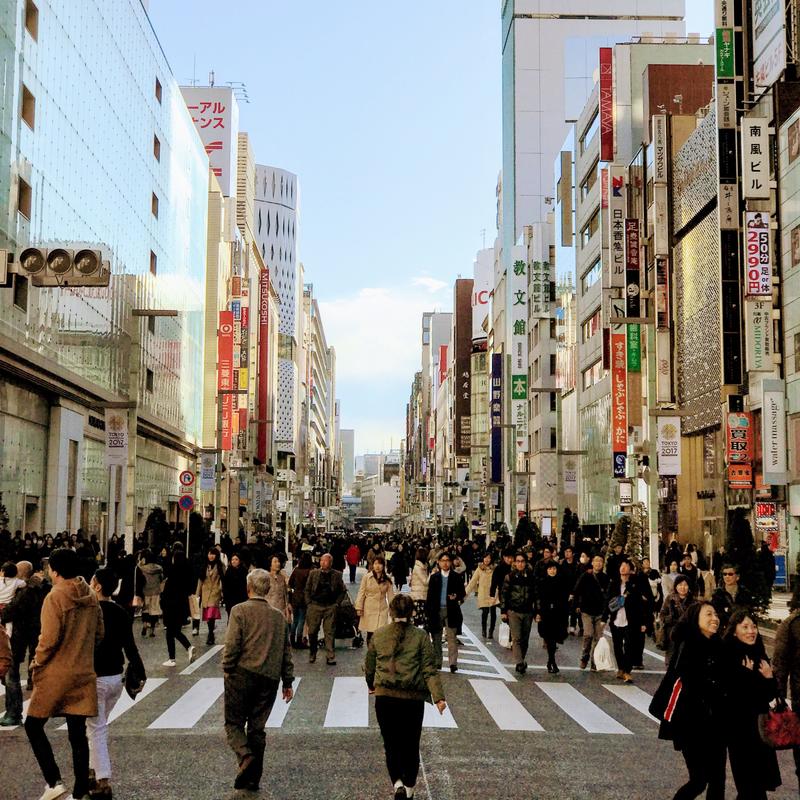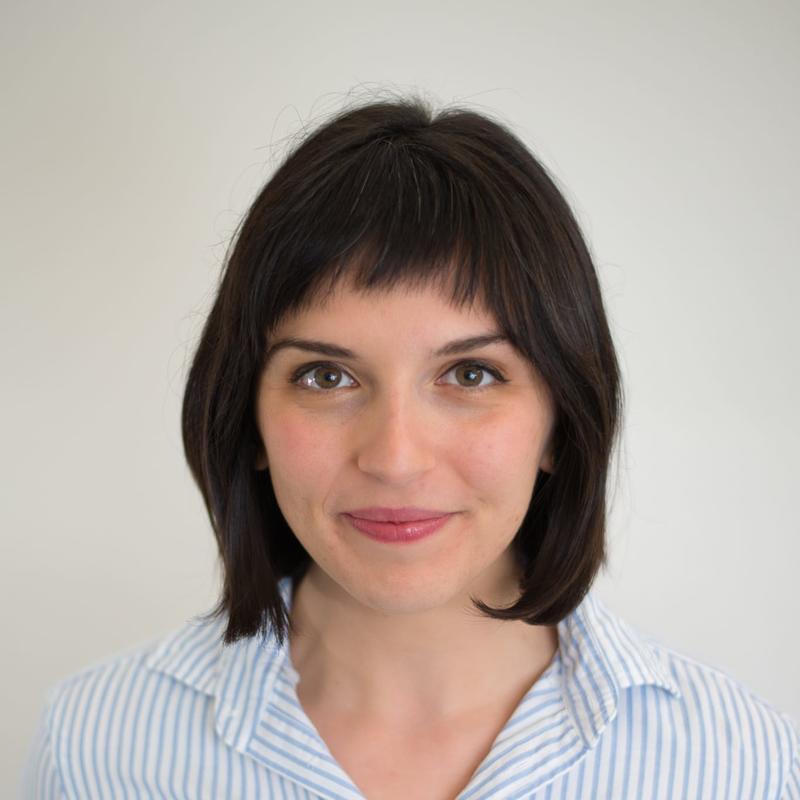Martina Baradel discusses the unique world of the yakuza, Japan's organised crime syndicates
Martina Baradel discusses the unique world of the yakuza, Japan's organised crime syndicates

In January, Marie Sklodowska-Curie Fellow Dr Martina Baradel appeared on the popular Japanese TV show, 'What are you doing in Japan?', discussing her research into the Japanese crime organisation, the yakuza.
The appearance prompted writer Tomohiko Suzuki, an expert on the yakuza, to interview Martina about her perspective as a researcher and outsider.
The following text was published in the Japanese news website News Post-Seven on 15 February 2023, and translated into English via DeepL. Some edits have been made for length and clarity.
Tomohiko Suzuki writes:
It was February 2018 when I was introduced to Martina Baradel. At the time, she was a graduate student studying for her PhD in Criminology at the University of London's Faculty of Law. She had been studying Japanese organised crime, or gangs, for three years and had been an exchange student at Rissho University in Tokyo since November of the previous year. During that time, I received an email from her asking me to meet with her.
Frankly, I am fed up with foreigners who are interested in the yakuza. This is because yakuza are often seen as 'ninjas' and I have a hard time getting some researchers to correct their distorted image of yakuza. Even when they take off their rose-tinted glasses, these 'gaijin' [foreigners] exaggerate and dramatise the yakuza. I understand that it is more popular in their home countries to describe the yakuza as assassins, one of the world's largest crime syndicates, and the fixers who control Japan from behind the scenes… but there is a limit to what the yakuza can do.
Not only do they misrepresent the yakuza, they make themselves into the heroes of crime novels and start telling the world that they are yakuza experts. It is tedious, time-consuming, and frequently causes trouble. I have learned the hard way that my name and work are often used to enhance the credibility of this work.
Nevertheless, I met with Martina to put a face to the name. I didn't want to go into the subject because my mind was closed. However, she persistently contacted me, and sent me an email saying that she would like to interview me in 2020 for a paper but could not come to Japan due to the pandemic, so she wanted to ask me a few questions.
From the questions, I understood that Martina was quite familiar with yakuza and Japanese society. She was different from the other 'gaijin' [foreigners] I had met so far. I was curious as to why she was so fascinated with the yakuza and why she wanted to investigate them so deeply. When I met her again earlier this year, she told me that she had appeared on a popular TV programme in Tokyo.
During her appearance on 'What are You Doing in Japan?', Martina said, "I cover neglected groups and the underworld in Japan. I use Japanese police documents and interview them."
I decided that this would be a good opportunity to ask this young Italian researcher to do a reverse interview.
First, I asked Martina why she was interested in the Japanese yakuza.
She said,
I was interested in the yakuza because I met them when I came to Japan for the first time. I had always been interested in Japan since high school and majored in Japanese language and culture at the University of Venice. In my junior year I decided I wanted to study contemporary Japanese society and politics, so when I was 20, I came to Japan to study.
On a vacation, I went on a trip to Shirahama with two friends from my home-stay in Tokyo. At night, we walked along the beach and saw people setting off fireworks. There were four or five men, one woman, and one child in the group, but he didn’t call the woman 'Okaasan' (mother). I noticed it was bizarre, although I didn't speak that much Japanese.
Then a man received a phone call and spoke in very polite language. I was curious and asked him about it, and he explained that he was a member of an Osaka yakuza group and that they had brought their leader's child to the beach to play.
Yakuza from the Kansai region often go to Shirahama beach to have fun. I was once invited to a beach party and jet skiing by executives of the Sakeume-gumi, a group from Osaka. They stay at membership resorts along the coast or in condominiums built to meet the demand for vacation homes and are no different from ordinary tourists. Even though these resorts can no longer be used by members of the yakuza due to the Bōhaijōrei [Yakuza Exclusionary Ordinances], many hide their membership and go anyway.
Gang members rarely get into trouble with residents at resorts. When they go on holiday, the yakuza are cheerful, talkative, and active - "the playboys" - and they pay well, making them an enjoyable lot. The yakuza I accompanied often took off their clothes to show their tattoos and explain their missing little finger when foreigners showed interest in them. It must have been an idyllic scene when Martina met the yakuza on the Shirahama beach.
But did she already know the yakuza existed?
I had seen them in movies and such, so I knew the name, but I never thought I would be able to talk to them. That night, the men showed me their tattoos and explained to me that there was a difference between the yakuza and the mafia. I was interested in the existence of such an organisation in a peaceful country like Japan.

Dr Martina Baradel, Marie Sklodowska-Curie Fellow
One summer's experience always changes young people. Martina became hooked on the yakuza. After returning to Italy and graduating from the University of Venice, she went on to graduate school at the University of Leeds in England, where she majored in Japanese politics. At the same time, she began researching the yakuza.
In order to inform European criminologists about the current state of organised crime in Japan, Martina then went on to an MA in Criminology at the University of Manchester. After graduation, she started her PhD at the University of London to further study crime in Japan.
Later, with support from the Japan Foundation, she studied abroad for six months at Rissho University to report on the current state of gangs. It was around this time that she first emailed me (2018).
Looking at her background, it would seem that yakuza research is advanced abroad. When I asked Martina that, she immediately denied it, saying, "No, it is largely ignored”.
Books on Japanese organised crime in Italian and English include ‘Yakuza: The Explosive Account of Japan's Criminal Underworld’ (Kaplan, David E./ Dubro, Alec, 1986) and ‘The Japanese Mafia - Yakuza, Law, and the State’ (Peter Hill, 2003), but little else. I realised that while there is much research in criminology on organised crime in other countries, such as the mafia in my home country of Italy, Japanese organised crime is largely ignored by the rest of the world.
‘Yakuza: The Explosive Account of Japan's Criminal Underworld’ is a powerful and serious report, but it is still somewhat problematic - in 1991, it was finally translated in Japan as ‘Yakuza: Nippon-style Crime, the Underground Empire and the Right Wing’ (Dai-san Shokan), but the authors had a hard time getting it published because while 18 companies came forward to obtain translation rights, they could not agree on a deal.
"We were forced to conclude that this book was one of the Japanese publishing industry's unofficial blacklist selections," wrote David Kaplan in the preface to the Japanese edition. "We had broken so many taboos on sensitive issues and important figures in Japan, and went so deeply, that it was implicitly declared that this book would never be published."
Foreigners do not doubt the value of their research results, and if publication is not forthcoming, they think of it as a conspiracy theory. But I can only assume that the reason why the publisher did not decide on a translator is because it was not interesting. More to the point, the premise was off and the conclusion was even further off, which was probably because it had a kind of ridiculous novel-like element to it.
With only this kind of material available, it is easy to see why Martina was eager to investigate the yakuza herself. She earned her doctorate and is now a Postdoctoral Fellow at Oxford University, currently based at a Japanese university.
Does Martina directly interview yakuza and conduct fieldwork?
She said,
That is a secret (laughs). Universities know that I am doing research on the yakuza. And Japanese universities take compliance very seriously. When I was assigned to this position, I was told not to have contact with gangsters and not to eat or drink with them. Given the position of the university, I understand that, so let's imitate the Japanese politicians here. I do interviews, but that doesn't mean I am in contact with them.
I've also been told not to accept requests for comment from the media, and not to respond to interviews. It’s the Japanese way: they tell you what to do, and you agree. In fact, nothing is asked or said afterwards. I am a sociologist, so I do the necessary research. The university knows that. As long as you are in academia, they don't tell you not to do research. The rest is up to you.
Since I am in criminology, I also want to do research on the police, but here, too, I encounter obstacles. If you ask a question to a police officer on the street in Japan, you will not get an answer. Police officers should have a different perspective depending on where they work, but it is difficult to conduct detailed on-the-spot research.
In other countries, such as the UK for example, it's easy to do. Short questions and questionnaires are answered by almost everyone. In fact, in the UK we received responses from several hundred police officers. We can conduct research based on that data, but if we ask questions to the Japanese police, they will pull out a police report and say, "Here's what it says on this page," and that's the end of it.
So, interviewing the police is very tedious and time-consuming, and I cannot get the detailed data I want. That part is very tricky, but if the higher-ups in the police department would tell me I can talk to them, perhaps the interviews would go ahead at once. I just have to open the doors one by one. That's all.
Martina understands the Japanese people better than they understand her.
She is an Italian who is currently studying criminology at Oxford University in England. Italy is home to the famous mafia, and in the UK, security is deteriorating and juvenile delinquents are turning into gangs, which has become a major social problem. I asked Martina to compare organised crime in Italy, the U.K., and Japan.
In Italy, Matteo Messina Denaro, a powerful boss of the Cosa Nostra mafia, was arrested on 16 January this year. He is the mastermind behind the murder of an anti-mafia judge and other cases. In 2002, he was sentenced to life in prison for bombings in Italy and for kidnapping, torturing, and killing the children of mafia informants. He is rumoured to have said that he could fill a cemetery with his victims, and has been missing for more than 30 years since going fugitive in 1993. He was captured while on a cancer treatment visit under someone else's name.
The mafia has a code of silence called ‘omerta’. The number of victims has decreased considerably, but there is still the fear that if you break the code, you will be killed. Children and women are killed regardless. So, it is difficult to go to the police.
The boss who was caught this year had been hiding out in Sicily, in the middle of the home of the mafia. He had been on the run from the police for decades and had never left Sicily. It was because so many people were not cooperating with the state.
In Italy, customs and sensibilities are completely different between the north and the south. The mafia is stronger in the south, but that is because in the local community, the mafia know all the family members and relatives, and if someone reveals a secret, they can retaliate against the whole family.
If the mafia move from place to place, they lose their power. In the north, people are more likely to go to the police if a mafia demand is made. The mafia's ‘omerta’ is only effective within local geographical and blood ties.
The yakuza tend to cite the mafia and insist, "We are not a criminal organisation, we are not like the mafia". I have heard this argument from the yakuza probably more than 100 times. As mentioned above, the yakuza Martina met in Shirahama, who determined her future, also emphasised the difference between the two to a foreign woman who knew nothing about them.
According to Martina, if you compare the two:
In Italy, there is the crime of association, where just being a member of the mafia is a crime. In Japan, the yakuza have offices in the streets and are allowed to exist, but other laws effectively restrict their human rights. I believe that this difference in laws makes the difference between the mafia and the yakuza.
I agree with her view.
Martina’s current research question is 'What kind of crimes are born when the yakuza are weakened?'
She explained:
I am researching what kind of crimes are created when the yakuza are weakened. So I also interview people in the non-yakuza groups, like the 'colour gangs'. They all wear the same colour clothes and sometimes commit robberies, but when I asked them about their activities, they said, "We gather together because it's fun.” It's like a club activity, but we don't call it a gang in other countries.
Gangs in England depend on the town, but knives are common, and several people die each year in gang fights. This is a big social problem, and ordinary people get involved, so I think Japan is really unique.
Also, the awareness of drugs in Japan is very different from that of other developed countries. Cocaine, heroin and marijuana have a big market in many European countries. Yakuza, mafia, and gangs are all involved in the drug trade, but their environments are very different, so it's hard to make a blanket statement.
After listening to the story, I changed my mind. I am still sceptical that foreigners can understand the yakuza. Japan is too different from the world standard. Without understanding the muddled dual structure of "honne" [true intention] and "tatemae" [official stance], it is difficult to understand Japan itself.
The existence of the yakuza is, for better or worse, a concentration of Japan's ambiguity. The yakuza magazine Jitsuwa Jidai, for which I worked, ceased publication with the September 2019 issue, but until then it was proudly sold at some convenience stores. Kudo-kai, the only designated dangerous gang, was a regular contributor to Jitsuwa Jidai, and the suspect in the murder of the president of Ohsho Foods has appeared in Jitsuwa Jidai three times in the past, giving interviews.
When disaster strikes, the yakuza volunteer their services and send relief supplies to the affected areas with their own money. They seek good in the face of evil, and the weekly magazines praise their efforts. Japan is the only such country in the world. I wonder if foreigners can understand why.
However, listening to Martina's story, one gets a unique perspective from a foreigner. She certainly understands the uniqueness of Japan. When I think about it, I myself am a halfway house, hovering on the border between a civilian and the yakuza. There are certainly truths that can only be seen from the strength of my half-way position on the borderline.


